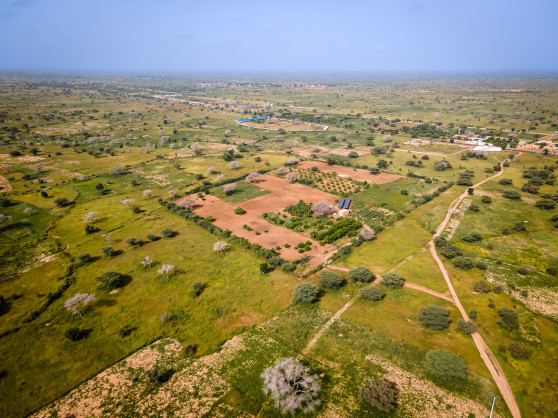Meeting in Abidjan on Wednesday 22 November 2023, the Board of Directors of the African Development Bank Group (www.AfDB.org) approved a €86.89 million loan to Senegal to develop an agribusiness processing zone in the north of the country.
The Bank’s contribution accounts for 30.7% of the estimated €283.05 million total project cost. The Islamic Development Bank (21.2%), the West African Development Bank (15.9%), Sponsor Dette (19.3%) and Sponsor Equity (7.7%) are the other contributors to the implementation of ‘Projet Agropole Nord’, in English, ‘Agricultural Hub North Project’.
The project is intended to improve industrial processing capacities for agricultural, forestry, pastoral, fisheries products and related services, while also sustainably increasing household incomes and food security. The Senegalese Government is contributing 5.2% of the project cost.
The project is one of five integrated and competitive agricultural hubs created by the Senegalese Government under its Plan for an Emerging Senegal for 2025. It comes after an earlier Board approval of the Agropole Sud (Southern Agropole) and Agropole Centre (Central Agropole) projects to cover the regions of Kolda, Sédhiou and Ziguinchor, in southern Senegal, and the regions of Diourbel, Fatick, Kaffrine and Kaolack, in the centre of the country. The project will be implemented by the Senegalese Ministry of Industrial Development and of Small and Medium Industries, with the objective of boosting exports and strengthening entrepreneurship.
“The project will foster the emergence of three agribusiness development hubs and will facilitate the networking of stakeholders in the value chains,” said Mohamed Chérif, the African Development Bank’s Country Representative in Senegal. “It will serve as a multi-sector platform for the incubation and integration of technologies, equipment and services to support small and medium-sized enterprises, industries and professional agricultural organizations. These hubs will help reduce the factors of migration-related fragility and climate change that can be seen in the project area.”
The project intervention area covers the regions of Louga, Matam and Saint-Louis, with a combined population of some 2.8 million people. It has significant agricultural, forestry, pastoral and fisheries potential and provides more than 80% of national rice production, 90% of its industrial tomato production and 50% of its onion production. With a sea coast, the River Senegal and Lake Guiers, the Saint-Louis region produces 122,000 tonnes of fish per year. It is also home to several private investments in the Senegal river valley.
During its implementation, the project will support the emergence of three agribusiness hubs through three agribusiness parks in the localities of Ogo, Bokhol and Dahra, each measuring some 130 to 150 hectares, along with 14 aggregation and services centres, all of which will facilitate the networking of value chain stakeholders.
In terms of expected outcomes, Agropole Nord will enable the processing and marketing of some 2.12 million tonnes of agricultural products from its fifth year of operation. In addition to its financial and economic impact, the project is expected to lead to the creation of 129,800 direct jobs in the agricultural, forestry, pastoral and fisheries sectors and 298,800 indirect jobs in related services.
As of 31 October 2023, the African Development Bank Group’s active portfolio in Senegal comprised 35 projects with a total commitment of 1,380 billion FCFA.
Distributed by APO Group on behalf of African Development Bank Group (AfDB).
Media contact:
Alexis Adélé
Communication and External Relations Department
[email protected]
About the African Development Bank Group:
The African Development Bank Group is the leading development finance institution in Africa. It comprises three distinct entities: the African Development Bank (AfDB), the African Development Fund (ADF) and the Nigeria Special Fund (NSF). Represented in 41 African countries, with an external office in Japan, the Bank contributes to the economic development and social progress of its 54 regional member states. For more information: www.AfDB.org
